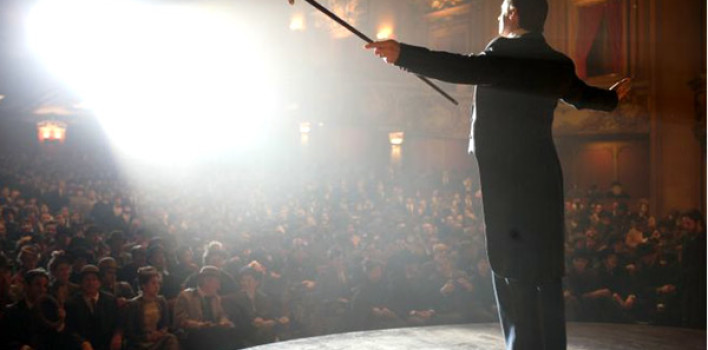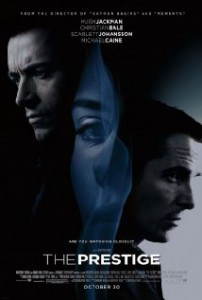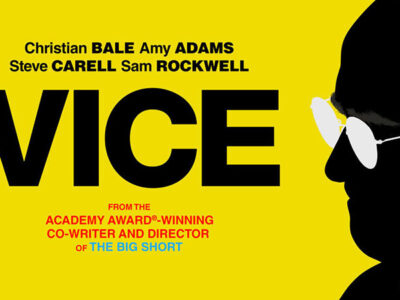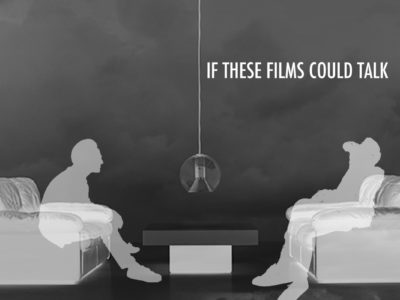Re:View| The Prestige
by Mark Wingerter (@MarkWingdinger)
Mark Wingerter is a writer, filmmaker, and musician with a passion for story. In his “Re:View” series, he will not only be exploring movies from the past, but helping you understand why they are worth revisiting.
A bird flutters in a cage on table in front of you. A man covers the cage in a cloth and suddenly slams his hand down onto the cage and whips the cloth back.
The table top is empty- the cage is gone, the bird is gone. It is as if both vanished into thin air right before your eyes.
Not sure what to think? Well, do not worry. The bird reappears from behind the man’s back and it flutters and dances in his hand. Magic, it appears, has set the bird free.
That mixture of astonishment and glee in the pit of your stomach that you feel after somehow being fooled by an amazing magic trick is exactly why the film The Prestige remains one of my favorites. It is a suspenseful, masterfully paced film in which two magicians, Robert Angier and Alfred Borden, take shots at trying to ruin each other, going back and forth until what is behind the curtain of their lives is revealed in the end. The story unwinds the way a magic trick does- opening with the pledge, leading to the turn, and ending with the final reveal of the prestige. It really delivers that sense of wonder we go to the movies to feel, and that wonder isn’t without the sense of shock that often accompanies illusion. Obsession is what drives these men, and as obsession is oft to do when it goes unchecked, it destroys everything in its path. It is a harrowing journey to follow. And for as much as the film addresses the plight of its lead characters, it just as much addresses its audience.
“Now you’re looking for the secret. But you won’t find it because of course, you’re not really looking. You don’t really want to know. You want to be fooled.”
This narration is given to us at both the beginning and end of the film. It speaks plainly of an audience’s disposition towards illusion, and by extension, our disposition towards what entertains us. We live in an entertainment obsessed culture where the options on the table are seemingly endless. Entertainment is certainly a valuable part of life. The arts engage us and help us examine our values and reinforce them. But as with anything we partake in, there is a line that is crossed where too much of a positive becomes a negative.
With my latest viewing of this film as I watched Angier and Borden do their worst in order to outdo the other and enact their revenge, I was focused on this particular theme of crossing the line. It brought up for me a specific type of rhetorical question: What would you do for a million dollars? How far would you go for, say, a big new house? A dream vacation? A klondike bar?
Often we announce that we would do “anything” for such a prize. But approaching it practically, not many of us would dare actually let someone write a blank check that we would have to cash, no matter what was on the other side. But when a prize we consider highly valuable is dangled in front of us, there’s no telling the lengths at which we might go to obtain it. The lengths for Angier and Borden are on display in the film, most notably in Angier, who seeks out Nikola Tesla himself to create a powerful machine to help him achieve what he wants.
Tesla: “Mr. Angier, have you considered the cost of such a machine?
Angier: “Price is not an object.”
Tesla: “Perhaps not, but have you considered the cost?”
Angier: “I’m not sure I follow.”
Tesla: “Go home. Forget this thing. I can recognize an obsession. No good will come of it.”
Angier: “Hasn’t good come of your obsessions?”
Tesla: “Well, at first. But I followed them too long. I am their slave… and one day they will choose to destroy me.”
Angier and Borden want to craft the ultimate illusion, and this desire is fed most prominantly by their obsession. We may really want a million dollars and find some fuel within us to set out and obtain that goal. But what is the real desire behind this pursuit? Why do we continue despite the cost?
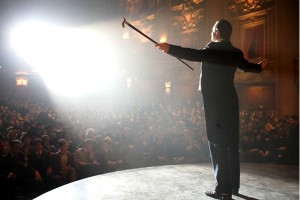 For the magician, the magic is the passion that drives them, but at the end of the trick as the curtain falls, they get to heart of what it is all about- applause. They want to raise their arms to the roar of the crowd. For all they do to seek it, all they want is affirmation, acceptance.
For the magician, the magic is the passion that drives them, but at the end of the trick as the curtain falls, they get to heart of what it is all about- applause. They want to raise their arms to the roar of the crowd. For all they do to seek it, all they want is affirmation, acceptance.
But applause dies down, it fades. Money can be spent, houses can fall, klondike bars are gobbled up. All that is left is the cost of what it took to gain these things. Would you become a slave for your prize?
“We are half-hearted creatures, fooling about with drink and sex and ambition when infinite joy is offered us, like an ignorant child who wants to go on making mud pies in a slum because he cannot imagine what is meant by the offer of a holiday at the sea. We are far too easily pleased.” – CS Lewis
The nature of life is that life itself is fleeting. So if everything goes in the end, then what is that ultimate prize that is worth pursuing despite the cost? CS Lewis describes a defect in our senses- our inability to decipher a one true ultimate, a lasting thing on which we can rest our hopes upon, from everything else that seems to be an ultimate.
I have pursued many things in my life as ultimates, tested their worth on an eternal scale, some as brief as an astounding magic trick, and some as life- altering as a relationship or an ideology. The only thing I have seen that has fulfilled a promise to be eternally lasting is Christ. He has promised to never leave us or forsake us, and He is the only thing that has remained. But life is painful, and nothing, not even Christ, promises a pain free existence. So we continue to grasp what is around us, hoping it will be a lasting cure for pain.
The trick of the bird disappearing from the cage is a delightful illusion. But what is the cost of performing such a trick? When you dig to the center, you see it’s true nature. The cage and the bird don’t actually disappear, they are crushed inside the apparatus of the table. The bird in the prestige of the trick is a look a like. It is a ruse.
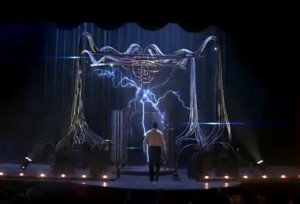 Angier’s penultimate trick is a mixture of fantasy and science, but in the film they call it “real magic” or “wizardry.” Nonetheless, each time he performs it he must continually question if he will be the man receiving applause from the crowd in the prestige, or the man whose life is sacrificed for the trick and drowned in a box below the stage. He accepts the considerable cost, becomes slave to his obsession, and is destroyed by it in the end.
Angier’s penultimate trick is a mixture of fantasy and science, but in the film they call it “real magic” or “wizardry.” Nonetheless, each time he performs it he must continually question if he will be the man receiving applause from the crowd in the prestige, or the man whose life is sacrificed for the trick and drowned in a box below the stage. He accepts the considerable cost, becomes slave to his obsession, and is destroyed by it in the end.
As we invest our lives in different things we are like magicians trying to trick ourselves, and ultimately as the curtain falls what we really want is to be accepted. We want to be truly known, for that is the essence of what fulfills us. Christ accepts us despite our natures and despite how far we have followed them away from him. So why do we still turn away, so often forgetting something that freely fulfills? Why do we, as Angier does time after time, step inside the apparatus of a new trick, hoping it will set us free and not destroy us?
Maybe it is because we aren’t truly considering the cost. If we were, we might not dare make the attempt. But we aren’t really looking, are we? We are far too easily pleased.
We want to be fooled.


